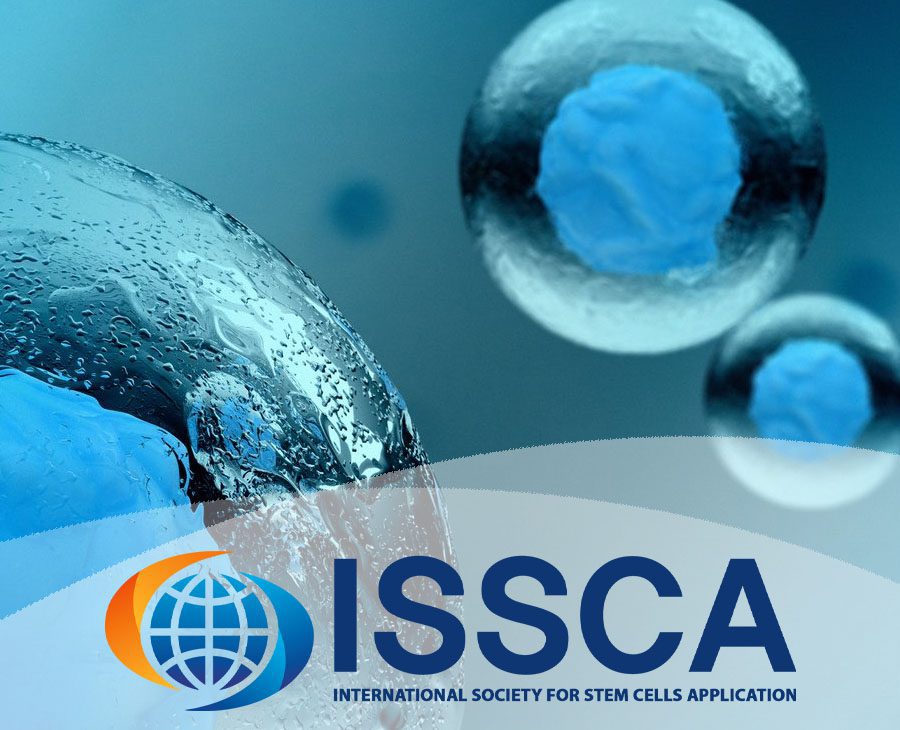Global Stem Cells Group Announces Training in Cochabamba, Bolivia at the End of November
The Global Stem Cells Group, a multi-disciplinary community of scientists and physicians that are collaborating to treat diseases and lessen human suffering through the advancement of the field of regenerative medicine has announced that the construction of their Stem Cell Center in Cochabamba, Bolivia, has concluded. What’s more, the organization has announced that, in celebration of the facility’s completion, the Center’s inaugural training course will take place at the end of November.
The new facility located in Bolivia is the 35th Stem Cell Center in the world, strengthening the Global Stem Cells Group’s presence worldwide as they seek to expand research for and the
practice of regenerative medicine across the globe. Representatives from the Group and local physicians in the area will both see the impact of this new clinic, which will offer a permanent space within the country where experts in the field can train Bolivian physicians in the latest stem cell research.
“I am very excited for the opportunity to train more Bolivian physicians. We’ve been laying the groundwork for this Stem Cell Center for a very long time, and it feels almost like a dream to have to ready to unveil to the world by the end of November,” Said Benito Novas, founder and CEO of the Global Stem Cells Group, “To be able to have a permanent location in Cochabamba, and to have spots quickly filling up for this training– I think it speaks volumes to the future of regenerative medicine being a bright one,”
This inaugural training is intended to not only teach physicians the value of incorporating regenerative medicine into their own clinics, but to ensure that there is a vast store of all the necessary equipment and supplies that are required for the wide array of cellular therapies that are available for patients around the world– including a highly interactive study session that goes over the extraction, isolation, and application of PRP, Adipose, ad Bone Marrow Stem Cells.
The Center will also provide access to several texts detailing procedure processes and treatment options that are available for reference after the training is completed.
If you are interested in learning more about the Global Stem Cell Group’s Onsite Regenerative Medicine Training, or to book your seat, you can visit us at our training website
About Global Stem Cells Group
Global Stem Cells Group (GSCG) is a worldwide network that combines seven major medical corporations, each focused on furthering scientific and technological advancements to lead cutting-edge stem cell development, treatments, and training. The united efforts of GSCG’s affiliate companies provide medical practitioners with a one-stop hub for stem cell solutions that adhere to the highest medical standards.
Global Stem Cells Group is a publicly traded company operating under the symbol MSSV. https://finance.yahoo.com/quote/mssv/
- Published in News
How to Check-In on Your Health
Many people say that health is wealth – and this is because, really, many people do not know how important and crucial their health is until a certain part of their body is suffering – at which point they realize that they took their health for granted. However, just like checking your bank statements to verify where your money is being spent, there are several easy ways that you can keep an eye on your health yourself. If you are really concerned, and there might be something seriously wrong with you, a visit to a hospital or clinic might be necessary, but otherwise, there are a few things that you can do right at home if all you need is a simple check. In fact, you’d be surprised at just what you can find out about yourself with just a few simple tests.
Check Your Temperature
One of the easiest ways to simply check on your general health is to take your own temperature. All you need is a digital thermometer, which can be found at nearly any pharmacy, and place it under your tongue for a few moments until it beeps to get a reading. From there, you have an accurate gauge at how ‘hard’ your body is working – the higher the body temperature, the more energy that the body is using.
Blood Pressure
If someone was to ask you what your blood pressure was today, would you be able to even give them a ballpark estimate? While many people do not know exactly what it is, even fewer recognize just how important this metric of bodily function is. High blood pressure, also medically known as hypertension, is one of the leading causes of heart disease – it can be caused from eating lots of salty foods, smoking, or drinking. Additionally, it can also depend on a variety of other internal factors including age, race, family history, and your amount of exercise.
Checking Your Pulse
Checking your pulse, or heart rate, is a simple test that doesn’t require any special equipment. In fact, it is something that people have been doing much the same way for centuries! It is very important to know your resting heart rate, as those with a higher average resting heart rate tend to be more at risk for heart disease than those with a lower heart rate (this is simply because the heart works more), and heart disease remains the leading cause of death in the United States of America.
How to Measure Your Waist
All you need for this is a tape measure, or to look at your pants size. The size of your waist is positively correlated with your weight. To measure it with a tape measure (as, depending on the fit of your pants, it may be the most accurate measure) all you need to do is take the end of the tape measure and bring it around your waist. Tighten it, and you should be able to measure the circumference of the waist. Healthy men are expected to have a waste smaller than 40 in, while women should have a waist lower than 35.
Check for Lumps
This is extremely important, and should be done regularly throughout your life. If you are a woman, you should be regularly checking your breasts for any lumps. This should be done in front of a mirror, as it can often provide a better view. To do this, all you need to do is work your way from the armpits to the nipple and check for any bruises, lumps, or discoloration – in short, anything that looks like it might not belong there. It can be done in as little as five minutes, but it is extremely important and one of the cornerstones to good health. If you find anything that is unusual, the earlier you catch it before it becomes a problem, the better. If you are a man, it is important to examine the testicles in a similar way. Feel around the sack and put a little pressure on the testes to feel for anything unusual. It may feel awkward, but it is far better to be safe than sorry with such a thing.

How Skin Plays into Health
The sun is something that everyone experiences every single day – at least, we should hope so, but this is not always a good thing. It’s warm, comforting rays can actually make human beings more susceptible to skin cancer. It’s important to put sunscreen on, at least 50 SPF before leaving the house every day. If you want to check your skin at home, you can, but there’s a few simple things that you have to keep in mind. Stand Stand in front of a mirror and examine every part of your body. You might want to have someone there to help you in examining your back – you want to look for warning signs that are known as the “ABCDE” Signs.
A is for asymmetrical shape, B is for irregular borders, C is for abnormal color, D is for diameter, and E is for evolving. If a mole is larger than a pencil in diameter, has a weird color, is not an even circle, or changes appearance over time, you should head over to a dermatologist as soon as possible.
Conclusion
These are just a few of the things that you can do at home to check up on your health. It is important to check your health regularly so that you can catch any strange developments early on – Invest in some equipment like thermometers and blood pressure monitors – they don’t have to break the bank, but they do have to be accurate. This is one way that you can keep an eye on your health, to hopefully catch any problems you might have before it’s too late to do so.
- Published in Blog
ISSCA Announces Speaker’s List for 7th Annual Symposium
The International Society for Stem Cells Applications has officially announced and published its list of speakers for its 7th Annual Regenerative Medicine Symposium. The seventh event of its kind, it is another effort from the iSSCA to bring together a network of regenerative medicine practitioners from all over the world. At previous events, hundreds of physicians came to share in their knowledge regarding cellular therapies and the patients whose lives they can change, and the aim of this year is no different– of course, as a reunion of medical professionals, several steps will be taken to ensure proper social distancing measures, as well as frequent opportunities for sanitation.
As with previous editions of the event, the topics discussed and speakers involved have been updated and edited in an effort to reflect the changing of time and the rapid evolution of the field of regenerative medicine. That is why this symposium will focus on Cellular Therapies During and After the Pandemic. Coronavirus has changed life as we know it, but the scientific and medical communities have not stopped researching. In fact, cellular therapies have been an invaluable asset in managing the largest pandemic in modern history, due to their implications in treating respiratory failure and managing some of the complications induced by exposure to COVID-19. This has resulted in accelerated pathways for regulatory approval and increased funding for new regenerative medicine-based clinical trials, which will all be discussed in greater depth at the event.
But the Regenerative Medicine Symposium also provides a valuable networking opportunity for physicians in the Latin American community. “Here, people interested in cellular therapy can find everything they need to get on the right path to helping people with regenerative medicine,” Said Benito Novas, VP of Public Relations, ISSCA, “If you’ve done some research yourself, or really have no idea where to start– this would be the place. We’ve got vendors, instructors, and interview panels with several distinguished researchers,”
About ISSCA
The International Society for Stem Cells Applications (ISSCA) is a multidisciplinary community of scientists and physicians, all of whom aspire to treat diseases and lessen human suffering through advances in science, technology, and the practice of regenerative medicine. Incorporated under the Republic of Korea as a non-profit entity, the ISSCA is focused on promoting excellence and standards in the field of regenerative medicine.
ISSCA bridges the gaps between scientists and practitioners in Regenerative Medicine.
Their code of ethics emphasizes principles of morals and ethical conducts.
At ISSCA, their vision is to take a leadership position in promoting excellence and setting standards in the regenerative medicine fields of publication, research, education, training, and certification. ISSCA serves its members through advancements made to the specialty of regenerative medicine. They aim to encourage more physicians to practice regenerative medicine and make it available to benefit patients both nationally and globally.
For more information, please visit us at www.issca.us or send an email to info@stemcellsgroup.com.
- Published in News
Global Stem Cells Group To Start Training Physicians In Lisbon, Portugal as Early as Sep. 2020
The Global Stem Cells Group has at last finalized discussions to open a The Stem Cell Center Network site in Lisbon, portugal. The Stem Cell Center operates an international network of regenerative medicine practitioners that is dedicated to sharing information with the end goal of bringing cutting-edge regenerative medicine-based treatments to patients suffering from debilitating disease.
The new Portuguese Stem Cell Center will be comprised of a highly-accredited, state of the art clinic/laboratory manned by physicians and scientists with combined decades of experience. It will be another strong foothold in Iberia for the global company, and carries with it full license to use the Group’s proprietary treatment methods and branding designs.
This will be the Global Stem Cell Group’s first permanent location in Portugal, rounding out the company’s presence in Western Europe and the Portuguese-speaking market with the new Lisbon-based partnership. The Stem Cell Center Network continues to roll out new membership opportunities, programs, and events, and our membership has grown steadily year after year– To date, we are present in twenty five countries and five continents.
And to commemorate this partnership the Stem Cell Network has plans to open the clinic in September of 2020, and begin training physicians shortly after. “We’ve wanted to expand into Portugal for a very long time,” Said Benito Novas, Founder and CEO, Global Stem Cells Group, “Now that the world is tentatively opening up, it seemed like a good time to resume teaching physicians– after all, with more people getting sick, it is important for their doctors to have all the tools at their fingertips to help,”
Barring any extenuating circumstances, the Stem Cell Center Network remains scheduled to open in the first week of September, with bookings already being accepted for the Network’s inaugural training at this clinic. With limited availability due to current social distancing efforts, spots are filling up quickly, and prospective applicants are encouraged to sign up soon for the hands-on training course.
To Sign Up Today, Visit us At: www.issca.us
About Global Stem Cells Group
Global Stem Cells Group (GSCG) is a worldwide network that combines seven major medical corporations, each focused on furthering scientific and technological advancements to lead cutting-edge stem cell development, treatments, and training. The united efforts of GSCG’s affiliate companies provide medical practitioners with a one-stop hub for stem cell solutions that adhere to the highest medical standards.
Global Stem Cells Group is a publicly traded company operating under the symbol MSSV. https://finance.yahoo.com/quote/mssv/
- Published in News
Global Stem Cells Group CEO Benito Novas Confirmed Speaker at 1st Ibero-American Fellowship Program in Regenerative and Functional Medicine
The First International Iber-American University Diploma has been announced to focus on laser therapy, hormone therapy, and wellness, and brings with it over a dozen seasoned instructors. The fellowship program, which spans over multiple weeks, covers a variety of topics with the focus of expanding the professional vision of medical professionals, and furthering knowledge of the applications of lasers in gynecology and cosmetic medicine. Additionally, it will update physicians on the newest techniques developed around the world to improve the quality of life of patients. A variety of protocols will be covered, including office, operating room, and hormone-based procedures.
The Fellowship Program has been certified by Atlantic International University, which is a private university based in Honolulu, Hawaii. Those physicians who complete the fellowship will be asked to demonstrate their knowledge through the use of clinical case studies involving real patients. Additionally, AIU offers students the opportunity to supplement this program with resources in various areas of knowledge, at no extra cost.
Benito Novas, CEO of Global Stem Cells Group, had this to say about the conference: “I am extremely proud and excited to be bringing this conference to physicians around the world. The program has been organized and directed by dear friends of mine, who have put in countless hours to ensure over a dozen physicians from a wide variety of specialties– really, nearly every field of medicine will be represented, and the course has been structured to ensure maximum retention for each and every student of ours,”
As a result, Global Stem Cells Group and the International Society for Stem Cells Application have both officially endorsed the course as a way for a physician to increase his knowledge in subjects ranging from cosmetic surgery, to marketing strategies, to hormone therapy, and everything in between. To learn more about the First International Ibero-American University Diploma, you may send an email to aiu-curso@amgerweb.com.
About Global Stem Cells Group
Global Stem Cells Group (GSCG) is a worldwide network that combines seven major medical corporations, each focused on furthering scientific and technological advancements to lead cutting-edge stem cell development, treatments, and training. The united efforts of GSCG’s affiliate companies provide medical practitioners with a one-stop hub for stem cell solutions that adhere to the highest medical standards.
Global Stem Cells Group is a publicly traded company operating under the symbol MSSV. https://finance.yahoo.com/quote/mssv/
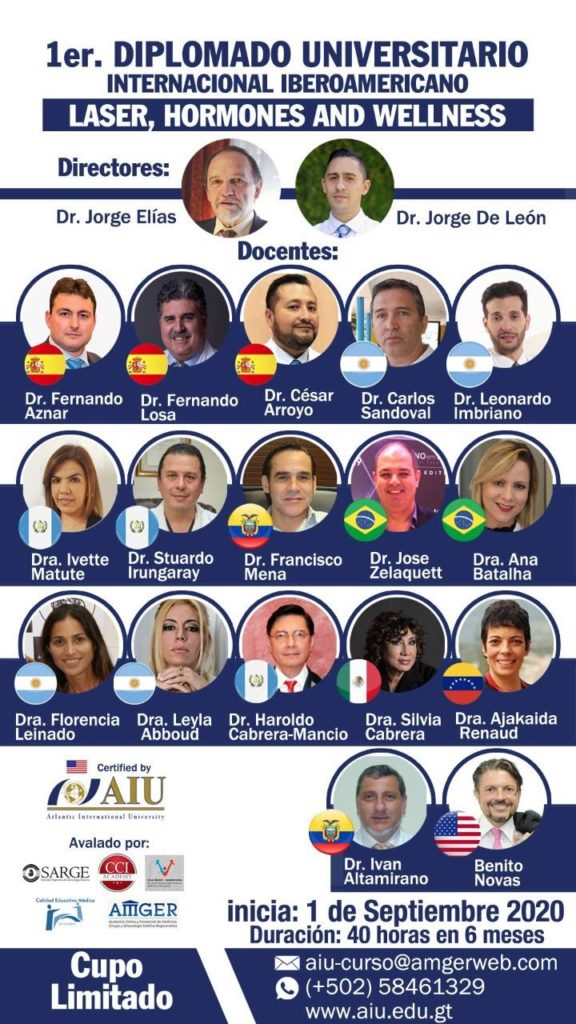
- Published in News
ISSCA to Launch Regenerative Medicine Studies Program in Collaboration with Medicel Chile
International Society for Stem Cell Application ISSCA to Launch Postgraduate Studies Program in Stem Cell Therapies and Regenerative Medicine in Collaboration with Medicel Chile
ISSCA and Medicel, Inc. have announced plans to launch a post-graduate studies program in stem cell and regenerative medicine, to be conducted in Santiago Chile February 2021.
MIAMI, July 20 , 2020— The international Society for Stem Cell Application ISSCA and Medicel Chile have announced plans to launch a post graduate studies program in stem cell therapies and regenerative medicine in 2020.
The program will include Seven days of intensive, interactive training coursework with classroom instruction and laboratory practice through didactic lectures, hands-on practical experience in laboratory protocols and relevant lessons in regulatory practices. Medicel’s Chief Scientific Officer and Other leading Scientists will teach the coursework and perform laboratory instruction, accompanied by a series of guest lecturers from the Global Stem Cells Group faculty of scientists.
Attendees will receive hands-on training in techniques for a variety of laboratory processes, and gain insight into the inner workings of a cGMP laboratory and registered tissue bank. Regenerative medicine experts with more 15 years of experience in the field will train attendees and provide the necessary tools to implement regulatory and clinical guidelines in a cGMP laboratory setting
The graduate course will be scheduled 3 times during 2020 starting February 23rd
“ Our end goal in Launching this Fellowship program is to help physicians that are looking for really advanced and formal training in Cellular Therapies and Regenerative Medicine — We want to provide them the necessary skills and in depth specialization that is lacking in our smaller point of care programs ,” noted Benito Novas ISSCA Public Relations Director
To learn more about the February 2020 certification event in Santiago, or any of the other upcoming certification courses around the world, visit the ISSCA website.
About the International Society for Stem Cells Applications (ISSCA)
The International Society for Stem Cells Applications (ISSCA) is a multidisciplinary community of scientists and physicians, all of whom aspire to treat diseases and lessen human suffering through advances in science, technology, and the practice of regenerative medicine.
Incorporated and Trademarked in the United States of America as a non-profit entity, ISSCA is focused on promoting excellence and standards in the field of regenerative medicine.
ISSCA bridges the gaps between scientists and practitioners in Regenerative Medicine.
Their code of ethics emphasizes principles of morals and ethical conducts. ISSCA’s vision is to take a leadership position in promoting excellence and setting standards in the regenerative medicine fields of publication, research, education, training, and certification. ISSCA serves its members through advancements made to the specialty of regenerative medicine. They aim to encourage more physicians to practice regenerative medicine and make it available to benefit patients both nationally and globally.
For more information, please visit the ISSCA’s website or send an email to info@stemcellsgroup.com www.stemcellsgroup.com
About Medicel Chile
Medicel Chile is one of the premiere regenerative medicine treatment centers in the country of Chile, conveniently located in Santiago de Chile, one of the largest metropolitan areas in Latin America. Medicel carries with it a reputation as one of the most scientifically advanced and professional regenerative medicine Laboratories in Chile, and this is in no small part due to its highly-qualified team of scientists and medical professionals and advisers, who research tirelessly to head new breakthroughs in the fields of cellular therapy and cryopreservation, which is the freezing of a stem cell sample to ensure its longevity and freshness, should the patient receiving the service ever wish to use their frozen cells for some future malady.
- Published in News
Global Stem Cells Group Releases New Product to Meet Growing Demand for Birth Tissue Derived Compounds
Cellgenic Flow Exosomes has a wide range of therapeutic implications, including hair loss and pain management
MIAMI LAKES, Florida—The Global Stem Cells Group (GSCG) has announced the release of a new product in response to growing demands from regenerative medicine practitioners for cellular products derived from birth tissue. The product, Cellgenic Flow Exosomes, is 100% natural and is available in a 1 mL vial comprised of 5 billion exosomes per mL and is currently manufactured in Mexico and in Global’s US-based facilities.
As the popularity and efficacy of stem cells treatments increase across the globe, the demand for cellular products like Cellgenic have also increased. With this demand in mind, the GSCG–a global leader in stem cell research, patient application, and physician training–sought to create an innovative cellular product to meet the needs of physicians looking to offer regenerative medicine treatments in their existing practices.
Cellgenic is primarily comprised of exosomes, cell-derived non-particles that play a pivotal role in cell-to-cell communication that are involved in a wide range of physiological processes. Exosomes play an important role in the transfer of proteins, mRNA, miRNA, and other bioactive molecules between cells and regulate gene expression in recipient cells, thus influencing various molecular pathways.
An increasing amount of attention has been paid to exosomes in recent years thanks to the wide range of therapeutic implications they may hold. Some of the most effective uses for exosomes have come in hair therapy and pain management.
Using Cellgenic as a treatment for hair loss has resulted in prominent hair growth results in both men and women. It is highly recommended for those who are too young for hair transplant surgery and for those within the earlier stages of the hair loss cycle.
In terms of pain management, Cellgenic has shown promise in delivering relief from pain and discomfort and may potentially stimulate repair as opposed to blocking or masking them. Common pain and degenerative conditions that Cellgenic may help treat include osteoarthritis, knee pain, shoulder pain, nerve pain, tendonitis, and slow- and non-healing wounds and burns.
For doctors who are interested in learning more about Cellgenic, the GSCG has developed an online course to provide them with the relevant knowledge needed to make a decision about incorporating allogeneic compounds into their treatment protocols.
“Global’s newest product innovation, Cellgenic Flow Exosomes, is an exciting addition to our product portfolio,” said Benito Novas, CEO of the Global Stem Cells Group. “Our goal is to continually innovate and meet the demands of physicians practicing regenerative medicine by providing cutting-edge therapies for those suffering from degenerative diseases. The release of our Cellgenic product accomplishes this goal while also contributing to our mission of being a leader in stem cells research.”
To learn more about Cellgenic Flow Exosomes, visit https://cellgenic.com/.
- Published in News
Knee replacement alternatives
Knee replacement, also known as knee arthroplasty, involves replacing a knee joint with a prosthetic device. Explore the alternatives to this procedure and their benefits.
Why Consider Knee Replacement Alternatives?
Many patients seek alternatives due to persistent pain and potential risks associated with knee replacement surgery.
Challenges of Knee Replacement
Patients often experience continued pain post-surgery, with studies showing significant discomfort even years later.
Common Risks of Knee Replacement
Understand the risks involved, including increased susceptibility to cardiovascular events and allergic reactions to prosthetic materials.
Types of Knee Replacement Alternatives
Discover effective alternatives that offer relief without the complexities of surgery.
Steroid Injections
While providing short-term relief, steroid injections may not offer long-term solutions due to their impact on cartilage.
Viscosupplementation
Gel-like substances such as hyaluronic acid injections offer relief for knee arthritis, though effectiveness may vary over multiple doses.
Knee Nerve Ablation
A promising procedure that involves disabling nerves around the knee joint to alleviate pain, though long-term outcomes are still under study.
Orthobiologics
Utilizing natural substances like PRP and BMC to promote healing and reduce degradation of knee tissues, offering both autologous and allogeneic options.
Platelet Rich Plasma (PRP)
Derived from the patient’s blood, PRP injections foster cartilage repair and reduce inflammation, beneficial for moderate knee arthritis.
Percutaneous Knee Arthroplasty (PKA)
A sophisticated procedure involving precise injections of bone marrow concentrates guided by ultrasound, effective even in severe cases of knee arthritis.
- Published in Blog


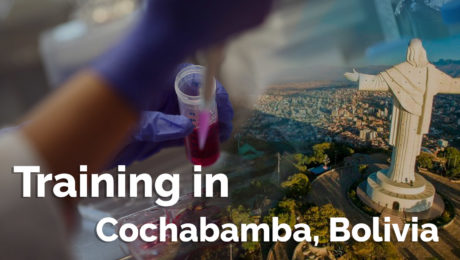
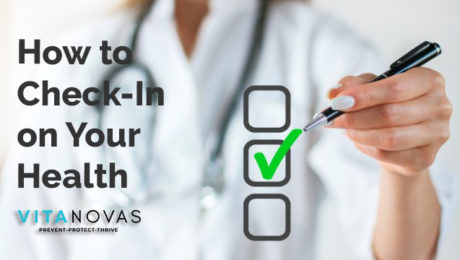
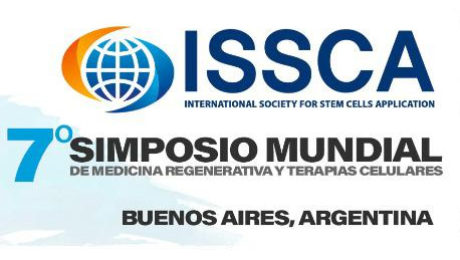
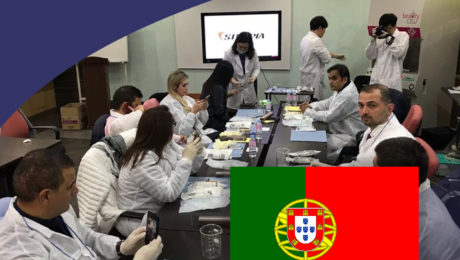
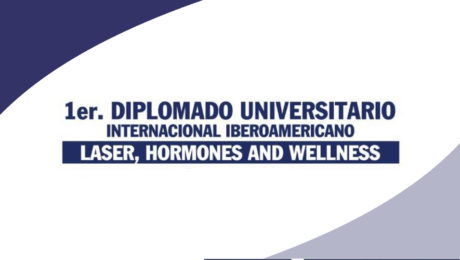
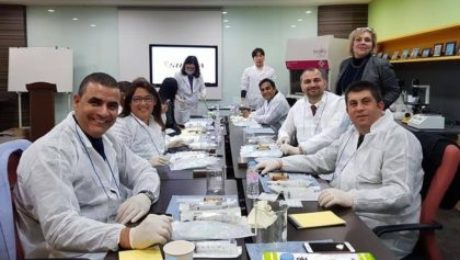
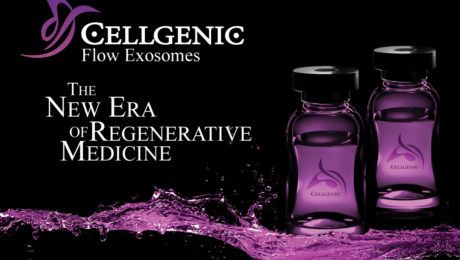
![services-knee-replacement[1]](https://www.issca.us/wp-content/uploads/2020/08/services-knee-replacement1-460x260_c.jpg)
